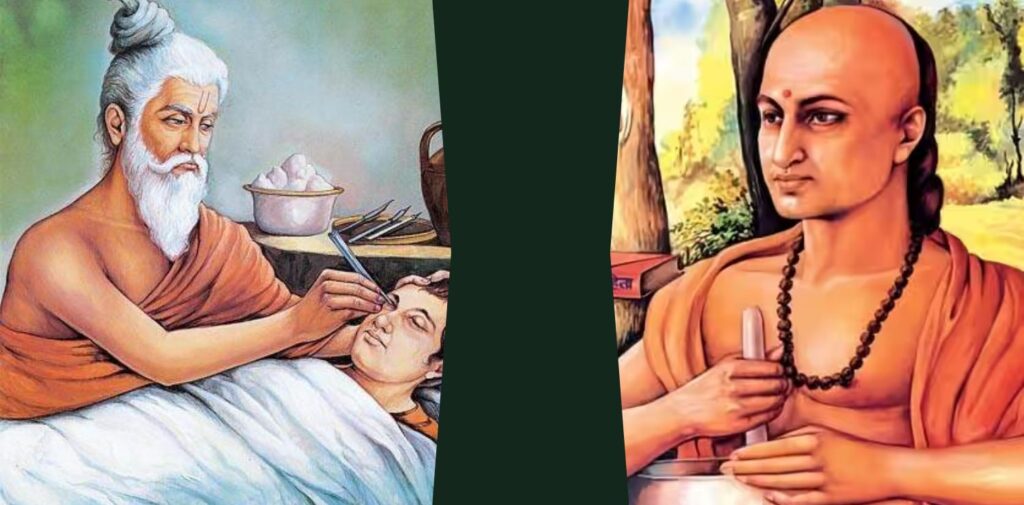Indian medicine: Ayurveda is one of the oldest and most advanced in the world. Among the various systems of medicine that developed in India, Ayurveda stands out as a unique and important tradition. The word “Ayurveda” comes from two Sanskrit words: ‘Ayur’ meaning life and ‘Veda’ meaning knowledge. So, Ayurveda means the “knowledge of life.” It is a system of medicine that has been practiced in India for thousands of years, focusing on maintaining balance in the body and mind to promote health and well-being.
In this article, we will explore how Indian medicine Ayurveda developed, its key principles, and its influence on both ancient and modern medicine.
The Beginnings of Ayurveda
The roots of Indian medicine: Ayurveda can be traced back over 5,000 years to the ancient civilization of the Indus Valley. However, the formal foundations of Ayurveda were laid in the Vedic period, during which the ancient Vedic texts (the oldest sacred writings in India) mentioned the healing powers of plants and herbs. The Rigveda, one of the oldest Vedic texts, has references to healing and medicinal plants, as well as concepts related to health and disease.
The main texts that form the foundation of Indian medicine Ayurveda are called the Ayurvedic texts or Vedic scriptures, and they include the Charaka Samhita, Sushruta Samhita, and Ashtanga Hridayam. These texts were written by ancient scholars who studied the human body, diseases, and treatments carefully. Over time, these teachings were passed down through generations.

Key Principles of Indian medicine: Ayurveda
Indian medicine: Ayurveda is based on the idea that health is a balance between the body, mind, and spirit. It believes that everything in the universe is made up of five basic elements: earth, water, fire, air, and ether (space). These elements combine in the human body to form three vital energies called Doshas. The three Doshas are:
- Vata (air and ether) – responsible for movement and breathing.
- Pitta (fire and water) – responsible for digestion and metabolism.
- Kapha (earth and water) – responsible for structure, growth, and lubrication.
Ayurveda teaches that when these Doshas are in balance, the body remains healthy. However, when they are out of balance, illness can occur. By maintaining balance between the Doshas, Ayurveda aims to prevent disease and improve overall well-being.
Diagnosis and Treatment in Ayurveda
In Ayurveda, the treatment is not just about curing the disease, but also about maintaining health. The Ayurvedic approach to diagnosis and treatment is holistic, meaning it considers the whole person, not just the symptoms of the disease.
To diagnose a condition, an Ayurvedic doctor (called an Ayurvedic Vaidya) looks at the person’s physical and mental health. They may ask about the person’s daily habits, diet, and lifestyle. They will also check the pulse, tongue, skin, and even the eyes, because these can give important clues about the balance of the Doshas.
Once the diagnosis is made, the treatment is personalized. The Ayurvedic Vaidya will focus on bringing the Doshas back into balance through natural means. This could include:
- Herbal medicine: Using plants and herbs to treat various diseases.
- Dietary changes: Eating foods that are suitable for the person’s Dosha type.
- Panchakarma: A special set of cleansing treatments to remove toxins from the body.
- Yoga and meditation: Practices that help to balance the mind and body.
- Massage and oil therapy: Techniques that help relax the body and improve circulation.
Ayurveda focuses on prevention, so people are encouraged to follow healthy routines and take care of their bodies before they get sick. A key principle is that eating the right food, getting enough sleep, and managing stress are all very important to staying healthy.

The Contribution of Charaka and Sushruta
Two of the most important figures in the history of Indian medicine: Ayurveda are Charaka and Sushruta. They are considered the fathers of Ayurvedic medicine and made significant contributions that shaped the system we know today.
- Charaka was a physician and scholar who wrote the Charaka Samhita, which is one of the most important texts in Ayurveda. The Charaka Samhita focuses on the principles of diagnosis and treatment. It explains how to identify the root cause of an illness and provides guidelines for medicines, diet, and lifestyle.
- Sushruta was a surgeon who wrote the Sushruta Samhita, which focuses on surgical techniques. It is one of the earliest texts that describe surgery and anatomy in detail. Sushruta is often called the “father of surgery” because of his pioneering work in surgical procedures, including plastic surgery and cataract surgery. He described how to perform surgeries with careful planning and hygiene, which was very advanced for its time.
Both of these texts continue to be used by Ayurvedic practitioners today and are considered masterpieces in the history of medicine.
Ayurveda and Its Connection to Nature
Indian medicine: Ayurveda has always had a deep connection with nature. Since the practice relies on natural elements such as herbs, minerals, and plant-based remedies, it has always emphasized the importance of living in harmony with the environment.
One of the main ideas in Ayurveda is the concept of “Prakriti” (nature). According to Ayurveda, human beings are part of the natural world, and to stay healthy, we must live in accordance with nature’s cycles. This means eating seasonal foods, following daily routines, and respecting the natural rhythms of life, such as sleeping early and waking up with the sunrise.
Indian medicine: Ayurveda also emphasizes the use of natural remedies, and many of the medicines used in Ayurveda are derived from plants, trees, and flowers. For example, neem, turmeric, ginger, and ashwagandha are all common Ayurvedic herbs known for their healing properties. Many of these plants have been scientifically studied and are still used in modern medicine for their health benefits.
The Influence of Ayurveda on Modern Medicine
Even though Ayurveda is an ancient system of medicine, its principles are still relevant today. Modern science has shown that many of the herbs and treatments used in Ayurveda have real health benefits. For example, turmeric is known for its anti-inflammatory properties, and ginger is often used to treat nausea and digestive problems.
In recent years, Ayurveda has gained popularity outside India, with many people seeking natural and holistic treatments for their health. Ayurveda has also influenced modern wellness trends, such as the use of herbal remedies, yoga, and meditation for stress relief and better health.
Many modern healthcare providers now acknowledge the benefits of combining Ayurvedic practices with conventional medicine. For example, Ayurveda’s focus on diet, lifestyle, and mindfulness complements modern approaches to health and wellness.

Ayurveda’s Role in the Modern World
In today’s fast-paced world, many people are looking for natural and holistic ways to maintain their health. Ayurveda offers a way to achieve balance and harmony in life, and it is seen as an important part of preventive healthcare. The Ayurvedic teachings about diet, exercise, and mental peace are being incorporated into modern wellness practices.
Many people are turning to Ayurvedic treatments for managing stress, improving digestion, boosting immunity, and maintaining overall well-being. Ayurvedic medicines, oils, and beauty products are also becoming popular around the world for their natural healing properties.
Ayurveda has also found a place in integrative medicine, where it is used alongside modern treatments to improve patient outcomes. Doctors and health practitioners are increasingly open to learning about Ayurveda and applying its concepts in a modern medical context.
Conclusion: Ayurveda’s Timeless Wisdom
Ayurveda is not just an ancient system of medicine; it is a way of life. Its emphasis on balance, natural remedies, and the connection between mind, body, and spirit has made it one of the most important contributions of ancient India to the world.
The teachings of Ayurveda, passed down over thousands of years, continue to guide people toward better health and well-being. Whether it’s through the use of herbal remedies, the practice of yoga, or the wisdom of diet and lifestyle, Ayurveda offers timeless lessons that are still relevant today. By learning and embracing Ayurveda, people around the world can experience its benefits, just as ancient Indians did for centuries.
Through its holistic approach, Ayurveda shows us how to live in harmony with nature, maintain balance in our lives, and take care of our bodies, minds, and souls. It’s truly a gift from ancient India to the modern world.




